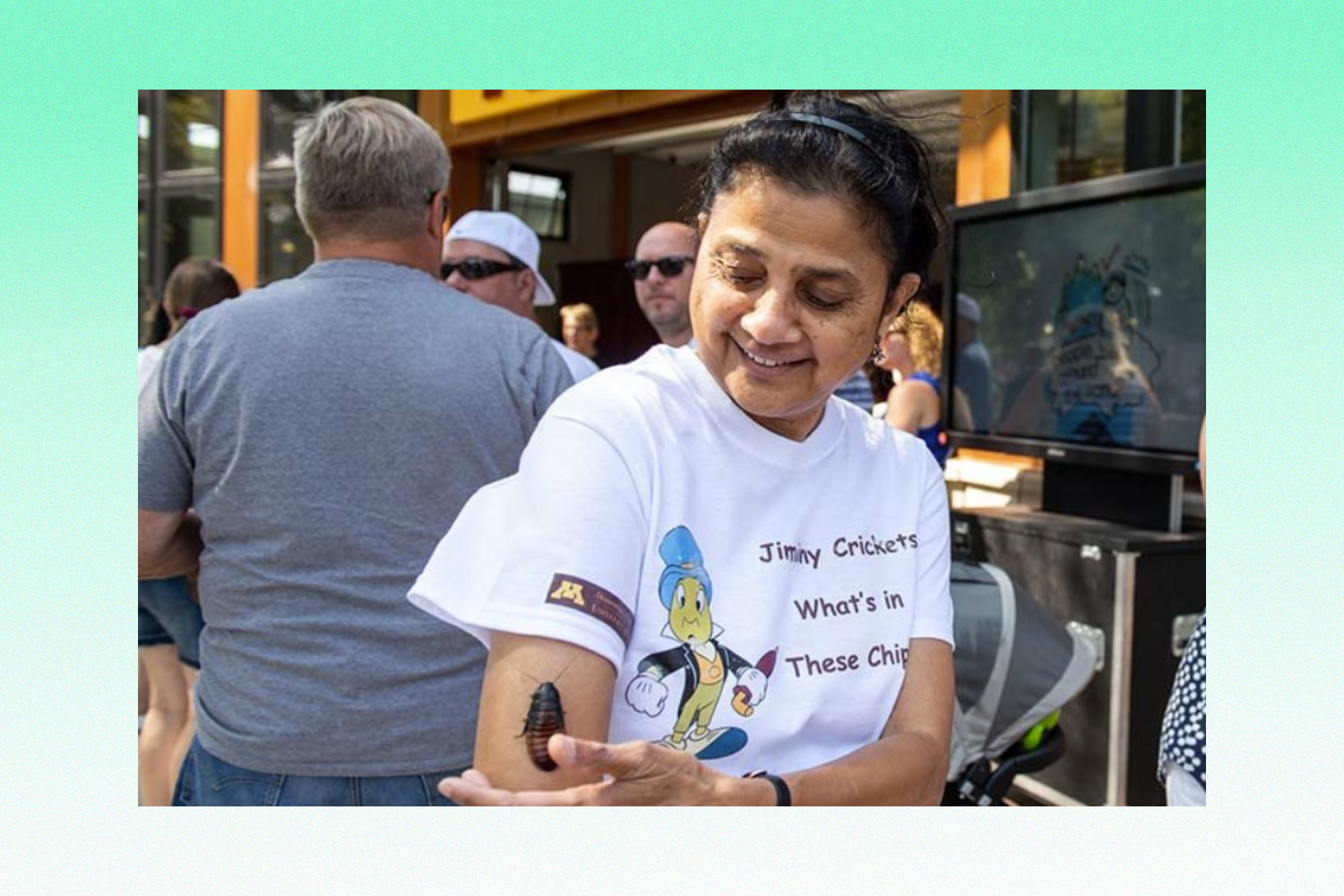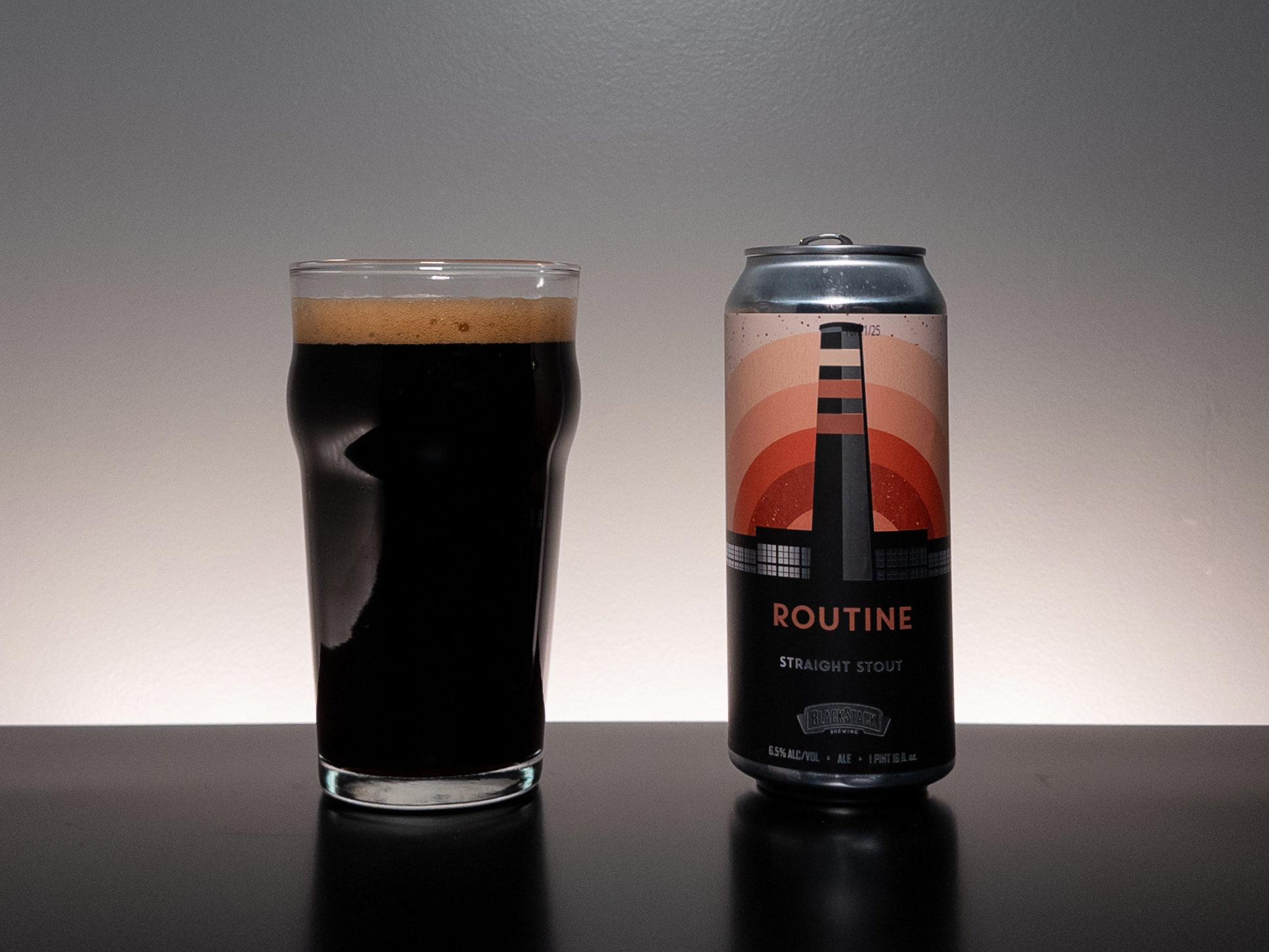"The ruling class really, really wants us to eat bugs," Daily Wire crank Michael Knowles once warned his YouTube viewers.
"WE WILL NOT EAT THE BUGS," Thierry Baudet, a fringe member of Dutch parliament, calmly tweeted last year.
“Welcome to your police state future: You will eat crickets and drink pee on a floating prison barge," according to frequent Alex Jones guest Mike "Health Ranger" Adams.
Mercifully, Dr. Sujaya Rao isn't aware of the growing right-wing conspiracy theory that liberal politicians want to seize your hamburgers and replace them with bugs. And, if such a diabolical social engineering project existed, you'd think Rao would've gotten a heads up: The University of Minnesota professor heads the Department of Entomology, where her outreach efforts center on edible insects. The title of her 2023 TEDxMinneapolis talk, "Why We Should All Eat Bugs," lets you know where she stands.
Born in India, Rao earned her doctoral degree at the U of M before leaving for the West Coast to pursue her postdoc degree. She worked with strawberry farmers on ways to avoid pesticides, thus helping save essential pollinators like bees. "I used to joke I have the solution—let's just eat the bugs!" she says with a chuckle.
Eventually the research started validating Rao's wisecrack, much to her delight. The National Institutes of Health and The American Heart Association have both exalted the environmental and health benefits of gobbling crickets, grasshoppers, worms, and ants, while a recent Time magazine article wondered, "They’re Healthy. They’re Sustainable. So Why Don’t Humans Eat More Bugs?"
The appeal is obvious, considering bugs are high in nutrients, low on calories, and can help curb the calamitous climate impact of industrial meat production. Local food dude Andrew Zimmern is on board (here's the recipe for his wok-tossed crickets with black bean sauce), as is celebrated Minneapolis chef Sean Sherman, whose James Beard-winning restaurant Owamni serves up a maple-chili cricket-'n'-seed mix ("We go through fifteen pounds of crickets a week," he told The New Yorker).
Insect consumption is just one of the draws of The Great Minnsect Show. Beyond sampling tiny critters, the free and family-friendly creepy/crawly bash will feature live insect demonstrations, insect-themed games, crafts, prizes, and educational talks from the region's top entomologists.
Not quite ready to channel your inner Timon and Pumbaa? We chatted last week with Dr. Rao to hear some insect-scarfing evangelism, plus let her plug the bug, er, sorry, big event that's going down Saturday at the U's St. Paul campus.
If a Minnesotan is looking to eat a bug for the first time, where would they begin?
The Great Minnsect Show on April 20th. [Laughs].
Ha! Good plug.
It's going to be free and there will be samples. 3 Cricketeers is a local business that produces cricket products, and they'll be there. I'll also be there with my cricket brownies that I make with cricket flour. You can find many edible insects online, like 3 Cricketeers, but the challenge for grocery stores is: Where do you put 'em? With the flour and baking goods? Because it's a protein supplement, do you put it there? Or with the snacks?
So when you're promoting the gospel of eating bugs, the biggest pushback I imagine is, "Ew, gross, why would I eat a bug?" What do you tell people to get them over that?
In the year 2050 there's going to be over 9 billion on this planet—how are those 9 billion going to be fed? There's going to be less land, less water, climate change… we need either alternative ways to produce food or something else as food. There's a food security issue. You think of the land needed to raise cattle vs. the land needed to raise insects. With insects, you can raise them vertically on shelves, which you can't do with cattle, plus the entire insect is pretty much ground up and you don't eat all parts of a cow. There's also all the health benefits; when you think about insects like the bee flying or the grasshopper jumping, all of that needs a lot energy, and that energy is muscle, and muscle is protein. People have done studies, and you've got OMEGA-3s, fatty acids, fiber, iron, and all these other health benefits. For a lot of, you know, Gen Z and millennials, the part that really appeals to them is the impact on the environment. It's sort of this win-win-win.
And these products taste pretty good, right?
They do. And that's where my interest is: How do you change social perceptions? You have candy with ants in it, crickets with spices on them, and those products didn't really take. So then they started with the powders, and I think what makes the difference is the similarity to products they already use. When I make brownies, you can't even see the insect—tastes the same as grandma makes. That makes it easier, if you can't see the yuckiness. There's also the education piece: Eating insects is not a new idea, right? People in over 100 countries have been doing that for centuries. Insects raised as food in the U.S. need to get past regulatory folks, so today's insects are raised in really sanitary conditions with no pesticides. When I talk, I ask, "How many of you eat prawns, crayfish, crabs?" They are very closely related, sort of first cousins to insects, so if you can eat those, you can eat insects. And shellfish eat stuff at the bottom of the ocean, you don't even know what they're eating!
Lobsters used to be fed to prisoners in like, the 18th century. So our idea of what a delicacy is can change.
Right. And you see at fine-dining restaurants, they're starting to add insects in their dishes. Owamni has cricket dishes. In fact, they buy their crickets from 3 Cricketeers.
So forgive my naïveté here, but let's say you have a hamburger. You eat that, it fills you up, you're good for the day. Is there a scale of an insect dish that could equally fill you up, to the point of being a meal replacement?
If you're thinking of an individual insect? No. So you would need many, many, many insects to come up with what goes into a burger. What we're pushing is more along the line of the protein supplements you get in the grocery store—put it in your smoothie, add to your oatmeal. People haven't done the research to come up with the question you asked, which is a great question.
In the future do you think there'll be insect-sourced food products that function more as a one-to-one with what we think of as a meal?
Potentially, yes. For that people will need to embrace entomology so the price comes down. Consumers are the drivers, and cost is a big driver. If you're at a pub, you're drinking beer and eating nuts, how many nuts would you eat while you drink that pint? At that level, you could have a spicy cricket grasshopper or cricket to the same level. At a Seattle Mariners game they had toasted grasshoppers, and I was told they ran out of them! By the way, I'm vegetarian and I eat insects, so I don't know how much of a steak it would take to fill you up. You'd just have to eat a lot of insects.
I'm sure you've seen this weird conservative movement, where they believe people on the left want to take their hamburgers and force-feed them bugs. It has become part of the culture war, and I think it's a pretty bad-faith argument, but how do you push back against that when you encounter it?
I've personally not encountered that. But I would say, the conservatives are the people who want their steaks, and insects are mini steaks that won't give you heart attacks!
[Laughs]. I'm glad you've not encountered that, it exists in the grimier parts of the internet, where they're convinced liberals want you to eat bugs.
I've not seen that… I didn't know it was a liberal thing to eat bugs!
I mean, to believe them, and of course we shouldn't, it's part of the grand political plan to re-engineer the way you eat, and bugs are a big part of that.
OK, that's good to know, thank you. I would say that being liberal can also mean being vegetarian, and if you're a vegetarian because you draw the line between animal and plant kingdom, you wouldn't even be eating insects. But if people become vegetarians because they're concerned about the cruelty toward animals in the slaughterhouse, then yes, they could embrace entomology because you don't get that same negative feeling when insects are killed. We freeze them to kill them, so it's a more humane way. But what I ask is: Can anyone honestly say they've never killed an insect?
What's the tastiest bug dish?
Pretty much anything if you put a little spice on it; I'm from India. Mealworms and crickets are nutty… there really haven't been any I don't like. Of course, don't eat poisonous insects. I've been asked about the cicadas coming out of the ground, and they can be eaten, especially right have they emerge. We don't know about allergies. Since they are closely related to crustaceans, people with those allergies should avoid eating insects. It's all in the mind, so people should have an open mind.
The Great Minnsect Show 2024
When: 10 a.m.-3 p.m. Saturday
Where: U of M St. Paul Student Center, 2017 Buford Ave., St. Paul
Tickets: Free; find more info here







